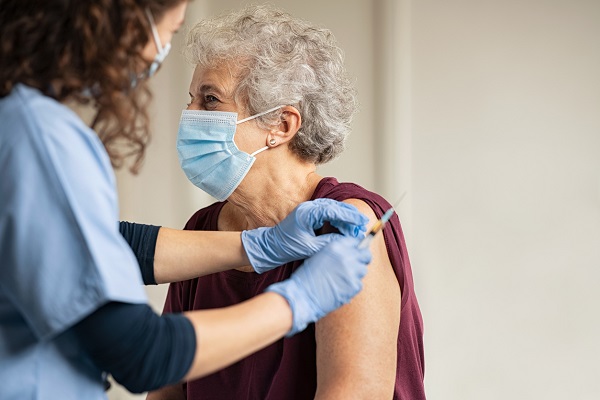-
With COVID-19 vaccinations now underway across Australia, we’ve put together some useful information and advice from government health departments.
But first, why vaccinate?
The COVID-19 vaccine is the most effective way to protect you and your loved ones from serious health issues related to COVID-19.
Vaccines train our immune system to recognise specific viruses and fight against them.
The more adults are vaccinated, the less likely the virus is to spread, helping to protect those in the community who may not be able to be vaccinated yet, such as children or pregnant women.
Is it safe?
All COVID-19 vaccines approved for use in Australia have undergone extensive clinical trials, strict testing and monitoring by our government’s Therapeutic Goods Administration (TGA) to ensure their safety and effectiveness.
Is the vaccine compulsory?
No, it’s your choice whether you get vaccinated or not. However, the government strongly recommends vaccination as it’s the most effective way to prevent the spread of COVID-19 in our communities and save lives.
When can I get vaccinated?
This will largely depend on which risk group you fall under. Understandably, those at greatest risk – for example, frontline healthcare workers, aged care or disability care residents - will be prioritised and vaccinated first.
Use the Health Direct Vaccine Eligibility Checker to see when you may be able to receive your vaccination.
And where?
Vaccinations will be offered at GP practices, GP respiratory clinics, Aboriginal Controlled Community Health Services, state-run vaccination clinics and some pharmacies.
Will it cost anything to get vaccinated?
The COVID-19 vaccination is free for everyone in Australia, including visitors, workers and students from overseas. Those without a Medicare card must be vaccinated at state and territory clinics, not through a GP.
Who isn’t the vaccine recommended for?
The vaccine is yet to be recommended for children under 18. And whilst there’s no data to indicate any issues or harm during pregnancy, there is not yet enough evidence to recommend COVID-19 vaccination for pregnant women. If you’re pregnant, or you have any ongoing medical issues such as blood clotting, compromised immune system or allergies, please consult your doctor.
Are there any side effects of the COVID-19 vaccine?
Some may experience minor side effects a few days after vaccination, such as pain, redness and/or swelling to the needle site, or mild fever.
Severe allergic reactions are extremely rare, but it’s recommended you stay at your doctors or clinic for 15 minutes following the vaccine to monitor for any reaction.
As always, it’s important you feel at ease with any health-related decision, so please speak to your doctor or call the COVID-19 helpline if you have any concerns about side effects.
On April 8, the Australian Government has announced changes to the rollout of the Astra Zeneca vaccine due to potential risk of blood clots in those aged under 50. Visit the Department of Health website for the latest information.
Is there more than one type of COVID-19 vaccine?
Yes, at this stage, both the Pfizer and Astra Zeneca vaccines have been approved for use in Australia. Both have passed rigorous testing and have proven to be effective at preventing COVID-19 symptoms and protecting against severe COVID-19 disease. Visit the Dept of Health website to learn which vaccine you may receive.
On April 8, the Australian Government has announced changes to the rollout of the Astra Zeneca vaccine due to potential risk of blood clots in those aged under 50. Visit the Department of Health website for the latest information.
Can I still have my flu vaccine?
Yes, and while it doesn’t matter in which order you have these vaccines, it’s important that there’s a 14-day gap between receiving the flu vaccine and the COVID-19 vaccine.
Anything else I need to do before getting vaccinated?
Make sure your Medicare details are up to date, and learn how to access your immunisation history, should you need proof of COVID-19 vaccination, for employment or travel purposes.
Don’t forget to practise good hygiene, maintain physical distancing and observe all rules relating to limits on gatherings. And be sure to isolate and get tested as soon as you suspect any of the symptoms of COVID-19.
Useful information about the COVID-19 vaccine rollout
For reliable, up-to-date information regarding the COVID-19 vaccine program, we recommend bookmarking the following the links.
- For more information about the vaccine and the nationwide rollout, visit the Department of Health COVID-19 vaccine page
- Subscribe to the latest COVID-19 vaccine updates here
- Find your state or territory health departments here
- And for information in other languages, click here
You can also call the National coronavirus & COVID-19 vaccine helpline on 1800 020 080.
Medibank health insurance members can chat with a registered nurse or mental health professional with 24/7 Medibank Health Support at no extra cost.* Call 1800 644 325 or log in to chat 24 hours a day, 7 days a week.
COVID-19 vaccine rollout. What does it mean for you?


Supporting you through COVID-19
From making the most of your cover, to staying healthy at home – we’re here to help.
Things you should know:
* Some referred services may involve out-of-pocket costs.